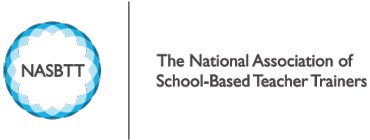Teaching and learning online

The COVID-19 pandemic has changed the way that many of us work and educators have had to adapt to new ways of working from home and teaching remotely or online.
While teachers are used to being adaptable as part of their practice, there are many challenges to implementing distance learning – which as we know is no replacement for face-to-face teaching.
As it is likely that we will need to continue with distance teaching and learning for the foreseeable future, we have put together a range of tips and resources to support home education.
Adapting your teaching for online
While the principles of great teaching should remain the same, implementing these when your students are behind a computer screen is far more challenging! However, there are many aspects of our practice that we can adapt and tweak to suit our new context of remote teaching.
Shaun Allison, Director of Durrington Research School and author of Making Every Lesson Count, recommends starting your lesson as you normally would, with some retrieval questions to check prior knowledge. He suggests doing this by recording a short video which students watch and pause as they need to or setting questions in advance using online forms.
Setting questions in advance can also help with lesson planning, along with checking through submitted work to help you plan questions to ask at the start of your next lesson. You can read more of Shaun’s suggestions in his blog ‘Questioning form a distance’ https://researchschool.org.uk/durrington/news/questioning-from-a-distance/
Resources to support online teaching and learning
A range of resources and education services are being offered to schools, here are a few of our recommendations.
- BBC Bitesize https://www.bbc.co.uk/bitesize:The BBC has refreshed and updated its Bitesize service to offer ‘Bitesize Daily’, which launched on 20th April. It has a range of lessons for all ages and Key Stages, with an impressive line-up of tutors including David Attenborough, Professor Brian Cox, Danny Dyer and even Ed Balls teaching Maths!
- British Museum https://research.britishmuseum.org/research/collection_online/search.aspx: The museum is offering access to its online collection, records and images.
- Ed Place www.edplace.com: This home education app includes a range of resources and activities for all ages. They are offering a trial period for just £1.
- GoConqr https://www.goconqr.com/: This resource enables teachers and students to create mindmaps and flashcards.
- Maths Factor (Carol Vorderman) www.themathsfactor.com: A curriculum-linked primary Maths resource which is being offered free while schools are closed.
- Memrise Memrise.com: Students can watch and learn real conversational language from native speakers through a range of videos and activities.
- Padlet https://padlet.com/: Make beautiful boards, documents, and webpages that are easy to read and fun to contribute to.
- Senca Learning [https://app.senecalearning.com/]: This site offers lots of free online courses for students.
Google Classroom
Since schools closed last month, many teachers have turned to Google Classroom to help manage their teaching and learning outside of the classroom. Classroom is an easy to use tool which allows teachers to create classes, set assignments, mark and feedback to students.
If you are new to Google classroom and would like to give it a go, then try downloading Ross McGill’s (Teacher Toolkit) beginners guide [https://www.teachertoolkit.co.uk/product/google-classroom/]. The 8-page PDF has been created during the pandemic to help teachers get started with Google Classroom. You need to register to download it, but the guide is free.
Don’t forget about your own development
It is easy to feel isolated and overwhelmed with news at the moment, and it is important to remain connected to others and to continue to develop yourself.
With this in mind, The Teacher Development Trust has launched #CPDConnectUp – a free online video chat to see friendly faces and talk about education research. There is an impressive range of contributors to the sessions (including Dylan William, Daniel Willingham and Thomas Guskey)
More details, including the full list of events and the booking link, can be found here http://tdtrust.org/cpdconnectup and #CPDConnectUp can be followed on Twitter.
Further reading and resources
- Questioning from a distance, Shau Allison: https://researchschool.org.uk/durrington/news/questioning-from-a-distance/
- Ros McGill (of Teacher Toolkit fame) has put together a really useful list of resources to assist with teaching online: https://www.teachertoolkit.co.uk/2020/03/15/how-to-teach-online/
- Ros’s beginners’ guide to google classroom: https://www.teachertoolkit.co.uk/product/google-classroom/
- SecED has put together a compendium of resources covering a wide range of curriculum areas: https://www.sec-ed.co.uk/resources-products/home-education-resources-schools-teachers-parents-coronavirus-covid-19-part-2-1/
















